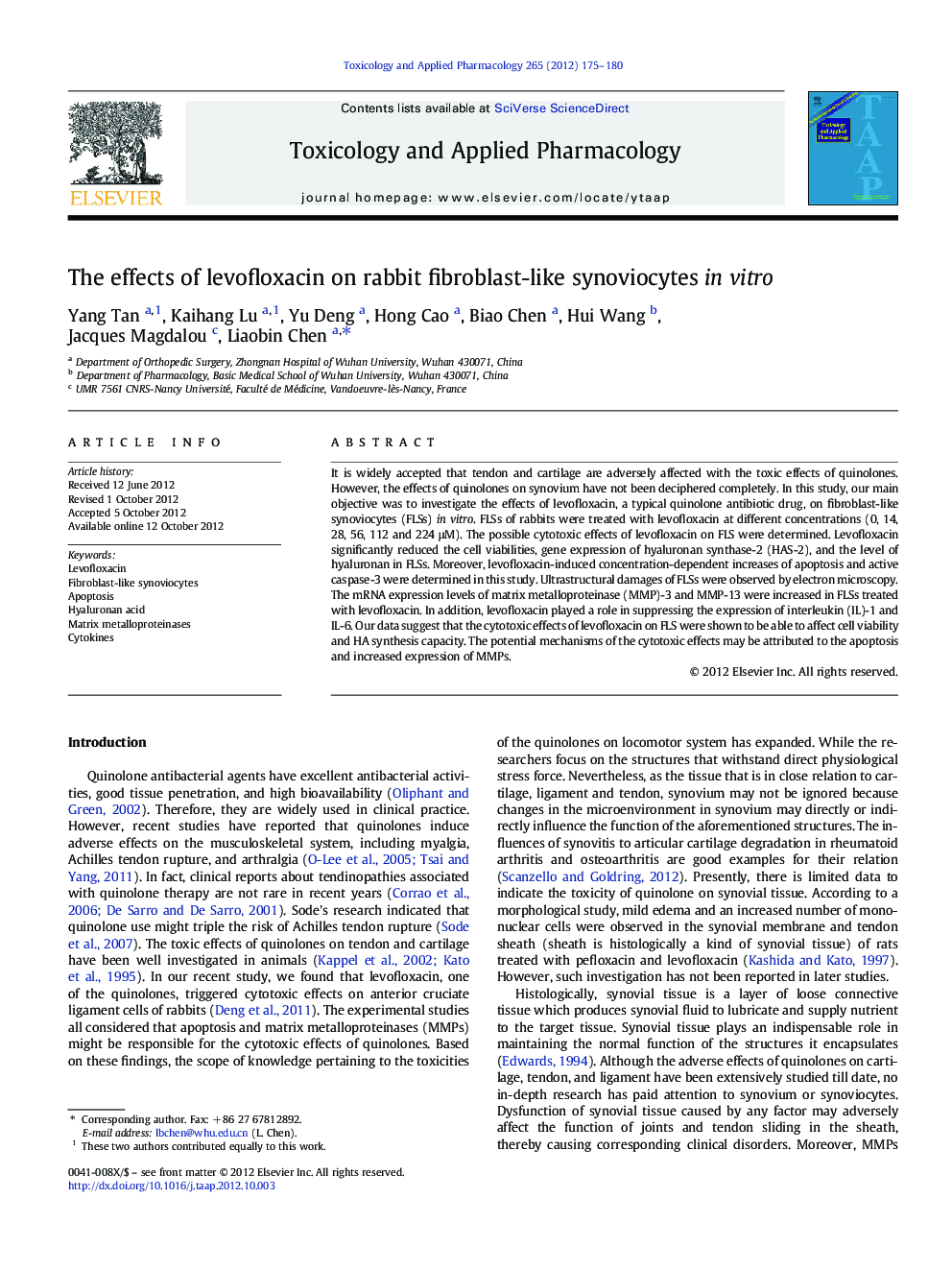| Article ID | Journal | Published Year | Pages | File Type |
|---|---|---|---|---|
| 2569365 | Toxicology and Applied Pharmacology | 2012 | 6 Pages |
It is widely accepted that tendon and cartilage are adversely affected with the toxic effects of quinolones. However, the effects of quinolones on synovium have not been deciphered completely. In this study, our main objective was to investigate the effects of levofloxacin, a typical quinolone antibiotic drug, on fibroblast-like synoviocytes (FLSs) in vitro. FLSs of rabbits were treated with levofloxacin at different concentrations (0, 14, 28, 56, 112 and 224 μM). The possible cytotoxic effects of levofloxacin on FLS were determined. Levofloxacin significantly reduced the cell viabilities, gene expression of hyaluronan synthase-2 (HAS-2), and the level of hyaluronan in FLSs. Moreover, levofloxacin-induced concentration-dependent increases of apoptosis and active caspase-3 were determined in this study. Ultrastructural damages of FLSs were observed by electron microscopy. The mRNA expression levels of matrix metalloproteinase (MMP)-3 and MMP-13 were increased in FLSs treated with levofloxacin. In addition, levofloxacin played a role in suppressing the expression of interleukin (IL)-1 and IL-6. Our data suggest that the cytotoxic effects of levofloxacin on FLS were shown to be able to affect cell viability and HA synthesis capacity. The potential mechanisms of the cytotoxic effects may be attributed to the apoptosis and increased expression of MMPs.
► Levofloxacin decreases hyaluronic acid synthesis in fibroblast-like synoviocytes. ► Levofloxacin exerts pro-apoptosis effects on fibroblast-like synoviocytes. ► Levofloxacin increases gene expression of MMPs in fibroblast-like synoviocytes. ► Levofloxacin exerts anti-inflammatory effects on fibroblast-like synoviocytes.
